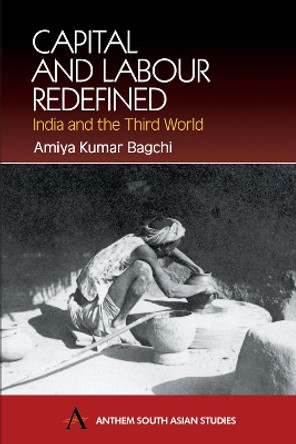Description
About the Author
Amiya Kumar Bagchi is the founder and director of the Institute of Development Studies in Calcutta, India.
Reviews
A good deal that we have seen before is still or again relevant to today's global capitalism, and Bagchi usefully reminds us of how many of these parallels are harrowing rather than hopeful; one hopes this book will reach the people who believe the stories Bagchi debunks and enrich a vital set of debates. -- Kenneth L. Pomeranz, University of Chicago * Economic and Political Weekly *
Explores the numerous ways the armed ascendancy of European capital has impacted the human development of the nonwhite dependencies of Europe and the Europeans themselves. Discusses human development and capitalist growth; capitalist competition and human development in Europe; the world beyond Europe in the age of the emergence of European dominance; and the antisystemic struggles, wars, and challenges to global capital. * Journal of Economic Literature *
This stimulating synthesis . . . has an excellent bibliography, incorporates recent specialist work in global economic history, and is genuinely erudite. A valuable reference for all world historians . . . Highly recommended. * CHOICE *
A hard-headed examination in facts and figures of how capitalism has insidiously but inexorably destroyed human happiness and ravaged our ecological system. . . . A compelling and thoughtful account with the lucidity of argument of someone compressing the essence of a lifetime's research into a philosophical framework. * The Statesman *
Magisterial. . . . [Bagchi] presents a comprehensive comparative picture of the historical economic development of China, India, and Japan, and their relation to what happened in Europe and North America. It is hard to suggest another work that does this in as small a space, so clearly, and based on such extensive acquaintance with the empirical literature. . . . It is refreshing to have Bagchi's voice added to the rather small list of important works on the origins and development of the modern world. . . . One can only hope that the book will have a wide international reading public. -- Immanuel Wallerstein, Fernand Braudel Center, Yale University * Monthly Review *
Bagchi has written a great book, a history of human development as he calls it, which offers a fascinating account of global capitalism as it evolved over a period of four centuries. . . . Writing a 'grand history' as Bagchi has done will inevitably create controversy . . . but this does not in any way diminish the significance of this monumental history of the human costs of economic growth. * Development and Change *
An ambitious work that essays to rethink the extent to which the transition to capitalism did not accomplish significant human development until well into the late nineteenth and early twentieth centuries. . . . Bagchi's 'human development' frame is one that stimulates and appropriately outrages. * Journal of World History *
An impressive book that, in the tradition of world systems analysis and dependency theory, challenges Eurocentric understandings of capitalism. . . . This book makes an important contribution to that struggle. * Science & Society *
[Bagchi] challenges Eurocentric views on the rise of capitalism and argues that Europeans gained a decisive advantage over China and India thanks only to the maturing of the machine-based Industrial Revolution in the nineteenth century. * International Review Of Social History *
Amiya Kumar Bagchi's Perilous Passage is a book that deserves our attention in this historical moment. It is born of our moment and offers us crucial intellectual resources in our attempts to understand the beast we must confront. Perilous Passage is a global history and in many respects perhaps one of the first truly global histories of our epoch to appear. . . . Bagchi's Perilous Passage is a weapon in the intellectual arsenal of social justice activists everywhere. . . . Perilous Passage may contribute to the development of a newer kind of understanding that will allow us to begin undoing the layers of injustice, ecological destruction, and human immiseration such ascendancy has created. * Labour *
A combative and spirited book telling the story of the economic emergence of the contemporary world in a radically different way from the standard accounts. It will not end debates, but begin them in a robust way, which surely is the function of fine 'alternative history.' -- Amartya Sen, Harvard University
Book Information
ISBN 9780742539211
Author Amiya Kumar Bagchi
Format Paperback
Page Count 422
Imprint Rowman & Littlefield Publishers
Publisher Rowman & Littlefield
Weight(grams) 640g
Dimensions(mm) 230mm * 153mm * 31mm







